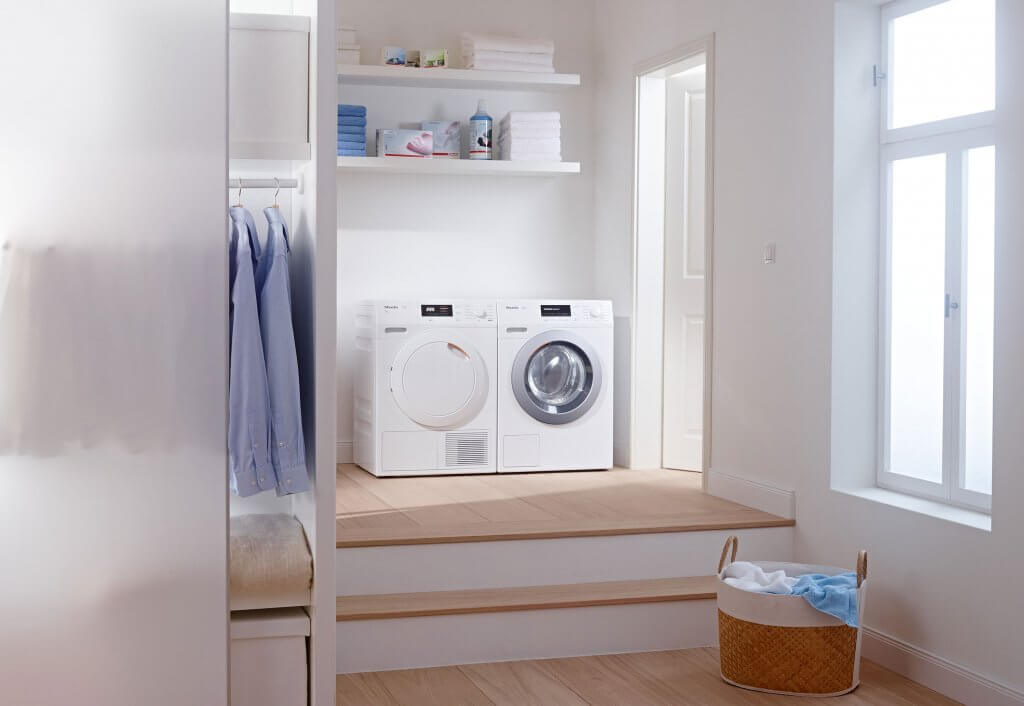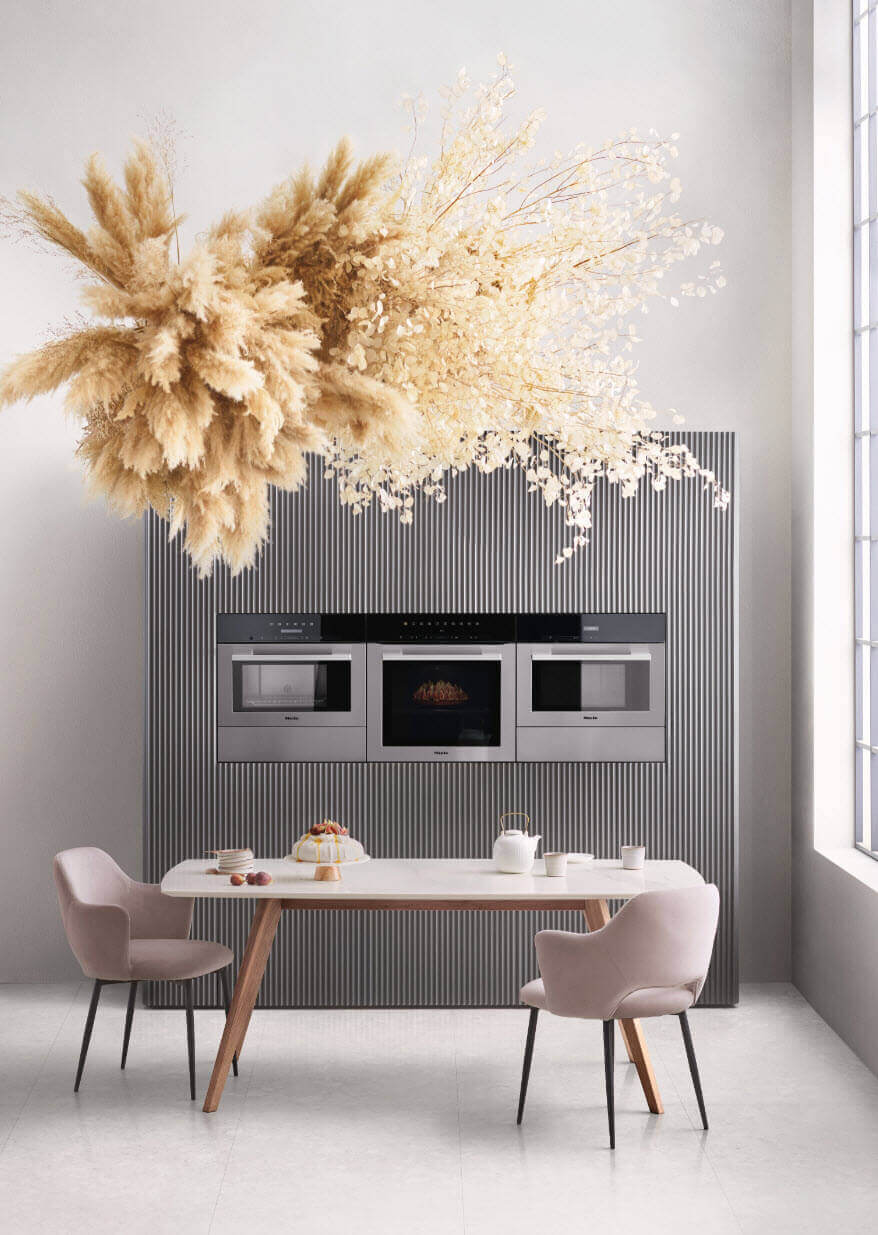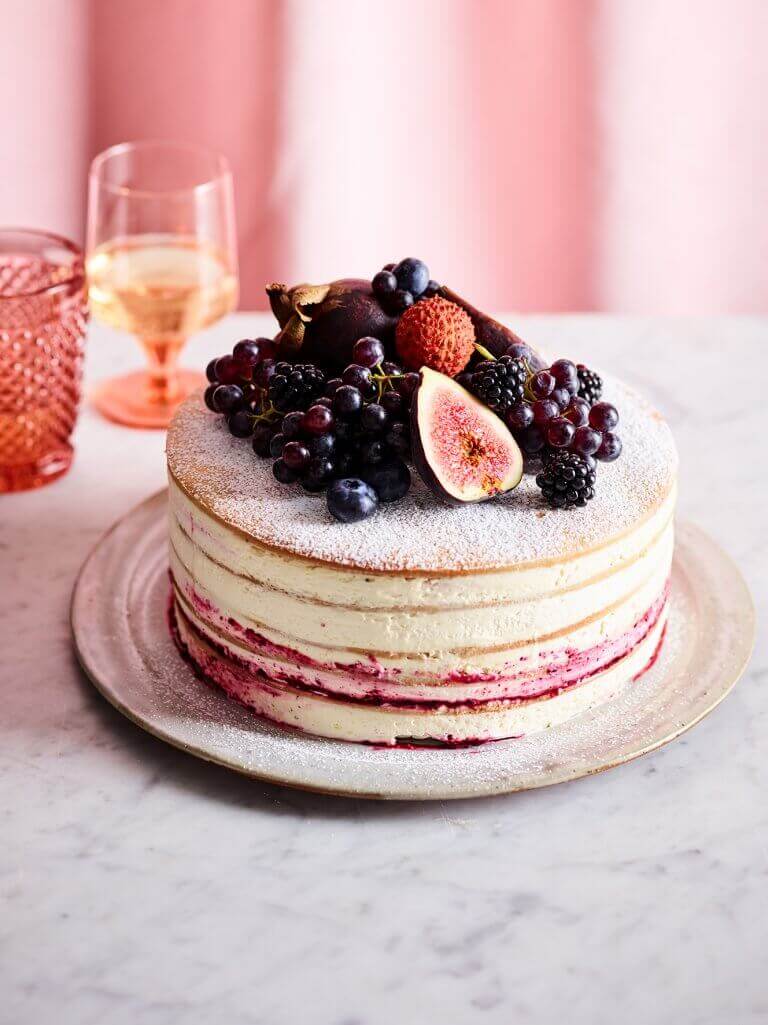Expert Tips On Laundry Design
Having a well-designed and organised laundry is a must. Just like kitchen design is important to inspire you to cook like a Master Chef, so too laundry design is important to help make that everyday task more enjoyable.
We spoke to Sydney-based designer Belinda Edmunds, a Director of Hungerford+Edmunds Architects, about what it takes to make your laundry area functional and inspiring.

Image via Urban Kitchens
Placement of the laundry
“Laundry briefs, no pun intended, are as varied as the clients,” says Ms Edmunds who has been specialising in private homes – free-standing, semi’s, terraces and apartments, renovations and new builds, for more than 15 years.
“If the client is planning from scratch, while the laundry doesn’t drive a design, it still needs to be allocated space. The ideal location is close to where you hang your washing out to dry.
“But if you have a three-metre wide terrace, the main living areas will pull rank and commandeer the garden elevation, in which case a laundry close to where you take your clothes off is a good option,” Ms Edmunds added.
A laundry space to match your home
Ms Edmunds says the amount of space available for a laundry will be determined by the size of the house, but if space is at a premium, she’d recommend a laundry that borrows from another space over a dedicated tiny room.
“At one end of the spectrum is the no-room laundry, an option where space is at a premium. Put the laundry behind closed doors, but have it located so as to borrow space from another room or circulation space when the doors are open” says Ms Edmunds.
“This minimises the space requirement without compromising functionality – it allows you room to breathe while loading the machine and it’s easy to close the doors and hide everything again. “With larger homes, the laundry can become a scullery or mud room.
A room that has access to the garden and can work as a second entry to the home; you can put your muddy things straight in the wash.
This area is where you can store the wellies and outdoor gear, wash the dog and incorporate indoor hanging space, with a rail over the bench for shirts to drip dry.”

Laundry design to reflect your lifestyle
“Just like kitchens, the way people use their laundries are personal and varied. “Laundries really start to get a work out with a young family, but don’t expect it to end there,” Ms Edmunds says.
“Nappies get replaced with paint, food and mud splattered clothing that needs a soak, and children don’t have a monopoly on stains.
“Arty or sporty adults generate their own laundry needs, not forgetting the odd splash of red wine that needs attention.”
She says with this in mind, it is important that the storage and work area are thought through when it comes to laundry design.
“Laundry storage comes into its own with a large family or shared household, so it’s an important consideration when you are designing the layout of your laundry,” Ms Edmunds says.
“You reach a critical mass, where you can separate the whites from the blues and delicates from cottons; instead of lumping everything in together in a mixed load, and the storage can facilitate this.
“A laundry sink is an integral component of any laundry, from a large, integrated stainless steel sink, to an under-mount white lab sink, or, for a classic and practical look, the butlers sink,” she says.
Some top tips:
Front-loading washing machines can fit under bench or have the dryer stacked on top. They are a great option when space is at a premium.
The ideal two-storey home has a laundry chute.
Appliances are critical, and you want to trust them to do the right thing by your laundry and the environment. For example, Miele’s washing machines with features like Delay Start make laundry more practical and effective, while their energy efficiency is great. Miele’s laundry appliances are incredibly quiet – especially important if your laundry appliances share another room in your home.
Discover more about Miele’s laundry appliance range here





